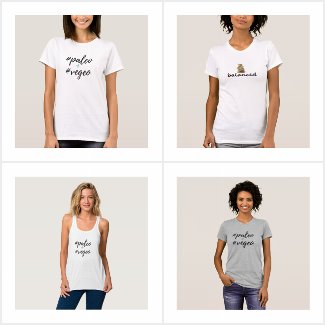We have been watching the story of J35 this week and it's just heartbreaking!!
My daughter converted over to my plant-based omegas last year, and I am so glad she did for many reasons. The equivalent of the human weight of the United States Is taken out of the ocean each and every year... I just keep thinking about this grieving Orca carrying her dead calf for the last week.
From the book “The Omega Principle: Seafood and the Quest for a Long Life and Healthier Planet,” ...
“Previous to the discovery of omega-3s and the supplement industry, all of those little fish were used for a number of agricultural purposes — fertilizer, to feed chickens, to feed pigs, to feed salmon, and now it’s the omega-3 industry,” said Greenberg, who added that the reduction industry removes 20 to 25 metric tons of ocean life from the sea every year.
“And that’s the equivalent of the human weight of the United States taken out of the ocean each and every year.”
All of this has me thinking, and I have shared it before... but we have to make more sustainable choices.
How necessary are these new exotic foods to an otherwise healthful diet filled with real whole foods? Do people need to supplement their lunches with pitaya and baobab? A new warning that a diet rich in regularly produced fruits and vegetables (you mean like carrots, broccoli, bananas?… like our whole foods supplements) is probably sufficient for health and energy and that unusual foods (think “superfoods”) can be unpredictable and even possibly harmful. Many of us don’t think about the way it could impact the absorption of our regular meals, or how it may interact unfavorably with your daily medication. Some would argue that because of serious soil depletion, toxic pollution, and fast moving pace in our lifestyles that in the modern world eating regular old farmed food just isn’t enough to be healthy anymore. I get that, we need to bridge the gap. So yes, supplementation is key. But that doesn’t mean we need to bridge the gap with some special, amazing foods from a far away land.
We were just talking the other day, myself, Dr. Mitra Ray, and another friend, Linda, about these foods from other countries and one of those is quinoa . So let’s talk about that because many of those that jump on the Transform 30 diet think “gluten-free = quinoa”. Obviously it is a nutrient-dense, gluten-free grain. That’s why my family originally used it. It comes from the Andes, where it has grown alongside potatoes, with roaming llamas and alpaca for thousands of years. Guess what? My family doesn’t use quinoa at all anymore. With the huge demand in Europe and the United States to have more healthy, gluten-free grains, quinoa—which is very high in protein—has become very popular, especially among foodies.
So now, Bolivians cannot afford to buy quinoa, and the quinoa-growing region of the country is also the most malnourished because those who grow quinoa for export now purchase refined grains to eat from the store. In Peru, quinoa now costs more than chicken. As well their own soil now faces decreased soil fertility, as farmers mine their soil to grow quinoa year after year to meet our demand, instead of using traditional methods of rotating their crops with animal pastures to restore fertility and prevent erosion. Asparagus production for export in Peru as well has led to water shortages that locals need.
In India, farmers have seen groundwater levels drop, and have been forced to go further down for water. From 180 or 190 feet, and now even as far down as 550 feet. And the water is getting dirtier, and is polluted more and more with pesticides and chemicals. They have seen an increase in suicides in farmers this year, even here in the US.
Then we get into that which rises to buying local. Transportation costs of food is one of the fastest growing sources of greenhouse gas emissions. A basic diet of imported products can use four times the energy and produce four times the emissions of an equivalent diet from domestic and local foods.
And many of our own precious resources have been “wildcrafted” to almost an extinction in their natural habitats, and this includes considering the growing essential oil business that I love.
Simply put, the richest nations in the world for the most part, are eating their way through ecosystems all over the world, and without a concern for where our future is going. If you want to be organic, you want to be engaged in the “green” discussion, then you have to admit that you are still a consumer, even if you are eating gluten-free quinoa and fair trade chocolate. Over-consumption and sustainability are not compatible to this lifestyle, no matter how eco-friendly we try to be about it. So we need to stop feeling like it’s our right to eat superfoods every day, on demand.
We don't want to give up our plastics, even though we are eating it. It's even in our salt. The balloons are harming turtles, and our sunscreen killing the coral reef.
We need to think globally starting now.
I encourage you to switch to a sustainable option... and this is one place you can start. omegas.paleovegeo.com.
From the book “The Omega Principle: Seafood and the Quest for a Long Life and Healthier Planet,” ...
“Previous to the discovery of omega-3s and the supplement industry, all of those little fish were used for a number of agricultural purposes — fertilizer, to feed chickens, to feed pigs, to feed salmon, and now it’s the omega-3 industry,” said Greenberg, who added that the reduction industry removes 20 to 25 metric tons of ocean life from the sea every year.
“And that’s the equivalent of the human weight of the United States taken out of the ocean each and every year.”
All of this has me thinking, and I have shared it before... but we have to make more sustainable choices.
How necessary are these new exotic foods to an otherwise healthful diet filled with real whole foods? Do people need to supplement their lunches with pitaya and baobab? A new warning that a diet rich in regularly produced fruits and vegetables (you mean like carrots, broccoli, bananas?… like our whole foods supplements) is probably sufficient for health and energy and that unusual foods (think “superfoods”) can be unpredictable and even possibly harmful. Many of us don’t think about the way it could impact the absorption of our regular meals, or how it may interact unfavorably with your daily medication. Some would argue that because of serious soil depletion, toxic pollution, and fast moving pace in our lifestyles that in the modern world eating regular old farmed food just isn’t enough to be healthy anymore. I get that, we need to bridge the gap. So yes, supplementation is key. But that doesn’t mean we need to bridge the gap with some special, amazing foods from a far away land.
We were just talking the other day, myself, Dr. Mitra Ray, and another friend, Linda, about these foods from other countries and one of those is quinoa . So let’s talk about that because many of those that jump on the Transform 30 diet think “gluten-free = quinoa”. Obviously it is a nutrient-dense, gluten-free grain. That’s why my family originally used it. It comes from the Andes, where it has grown alongside potatoes, with roaming llamas and alpaca for thousands of years. Guess what? My family doesn’t use quinoa at all anymore. With the huge demand in Europe and the United States to have more healthy, gluten-free grains, quinoa—which is very high in protein—has become very popular, especially among foodies.
So now, Bolivians cannot afford to buy quinoa, and the quinoa-growing region of the country is also the most malnourished because those who grow quinoa for export now purchase refined grains to eat from the store. In Peru, quinoa now costs more than chicken. As well their own soil now faces decreased soil fertility, as farmers mine their soil to grow quinoa year after year to meet our demand, instead of using traditional methods of rotating their crops with animal pastures to restore fertility and prevent erosion. Asparagus production for export in Peru as well has led to water shortages that locals need.
In India, farmers have seen groundwater levels drop, and have been forced to go further down for water. From 180 or 190 feet, and now even as far down as 550 feet. And the water is getting dirtier, and is polluted more and more with pesticides and chemicals. They have seen an increase in suicides in farmers this year, even here in the US.
Then we get into that which rises to buying local. Transportation costs of food is one of the fastest growing sources of greenhouse gas emissions. A basic diet of imported products can use four times the energy and produce four times the emissions of an equivalent diet from domestic and local foods.
And many of our own precious resources have been “wildcrafted” to almost an extinction in their natural habitats, and this includes considering the growing essential oil business that I love.
Simply put, the richest nations in the world for the most part, are eating their way through ecosystems all over the world, and without a concern for where our future is going. If you want to be organic, you want to be engaged in the “green” discussion, then you have to admit that you are still a consumer, even if you are eating gluten-free quinoa and fair trade chocolate. Over-consumption and sustainability are not compatible to this lifestyle, no matter how eco-friendly we try to be about it. So we need to stop feeling like it’s our right to eat superfoods every day, on demand.
We don't want to give up our plastics, even though we are eating it. It's even in our salt. The balloons are harming turtles, and our sunscreen killing the coral reef.
We need to think globally starting now.
I encourage you to switch to a sustainable option... and this is one place you can start. omegas.paleovegeo.com.


.png)































0 comments:
Post a Comment